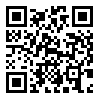مجله رویش روانشناسی از دادن گواهیهای کاغذی معذور است. لطفا تقاضا نکنید. همه گواهی ها در صفحه شخصی کاربران موجود است.
year 13, Issue 2 (spring 2024)
Rooyesh 2024, 13(2): 159-170 |
Back to browse issues page
Download citation:
BibTeX | RIS | EndNote | Medlars | ProCite | Reference Manager | RefWorks
Send citation to:



BibTeX | RIS | EndNote | Medlars | ProCite | Reference Manager | RefWorks
Send citation to:
Ershadi moghadam F S, Mirzahosseini H, Sharifirad G. (2024). The mediating role of ego strength in the relationship between trauma and dissociative states and depersonalization. Rooyesh. 13(2), 159-170.
URL: http://frooyesh.ir/article-1-5010-en.html
URL: http://frooyesh.ir/article-1-5010-en.html
1- Ph.D Student, Department of Psychology, Qom branch, Islamic Azad University, Qom, Iran.
2- Associate professor of psychology, Department of psychology, Qom branch, Islamic Azad University, Qom, Iran. ,Mirzahosseini.Hassan@iau.ac.ir
3- Professor, Faculty of Health, Qom University of Medical Sciences, Qom, Iran.
2- Associate professor of psychology, Department of psychology, Qom branch, Islamic Azad University, Qom, Iran. ,
3- Professor, Faculty of Health, Qom University of Medical Sciences, Qom, Iran.
Abstract: (767 Views)
The present study was conducted to investigate the mediating role of ego strength in dissociative and depersonalized states of people with traumatic experiences. The research method was the descriptive-correlation type of path analysis. The statistical population in this research was made up of all people aged 15 to 35 who had traumatic experiences in Qom province in 1402, and the research sample included 250 of these people considering the inclusion criteria. Therefore, by sending a link to the selected people, the questionnaires were completed online. Measurement tools, depersonalization questionnaires (DES, Sierra and Berios, 2000), dissociative experiences (DES-II, Carlson and Putnam, 1993), childhood trauma (CTQ, Bernstein et al., 2003), and ego strength. (ESS, Baron, 1953). Data analysis was done using Pearson correlation and path analysis. The results of the fit of the proposed model indicated a good fit of the model with the data. Based on the findings, childhood trauma has a positive and significant effect on dissociative states and depersonalization and a significant negative effect on ego strength (P<0.01). Also, ego strength has a negative and significant effect on dissociative and depersonalized states (P<0.01). Also, the indirect effect of childhood trauma on dissociative and depersonalized states was significant by entering the variable of ego strength into the model (P<0.01). Therefore, the strength of the ego can affect the post-traumatic experience and cause psychological balance and the absence of dissociative and depersonalization disorders when fighting against internal and external stimuli.
Type of Article: Research |
Subject:
General Psychology
Received: 2023/12/8 | Accepted: 2024/02/23 | ePublished: 2024/04/29
Received: 2023/12/8 | Accepted: 2024/02/23 | ePublished: 2024/04/29
Send email to the article author
| Rights and permissions | |
 |
This work is licensed under a Creative Commons Attribution-NonCommercial 4.0 International License. |





